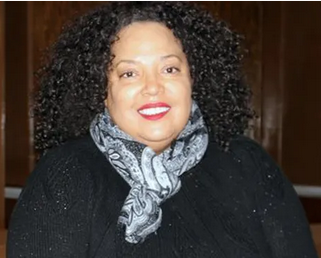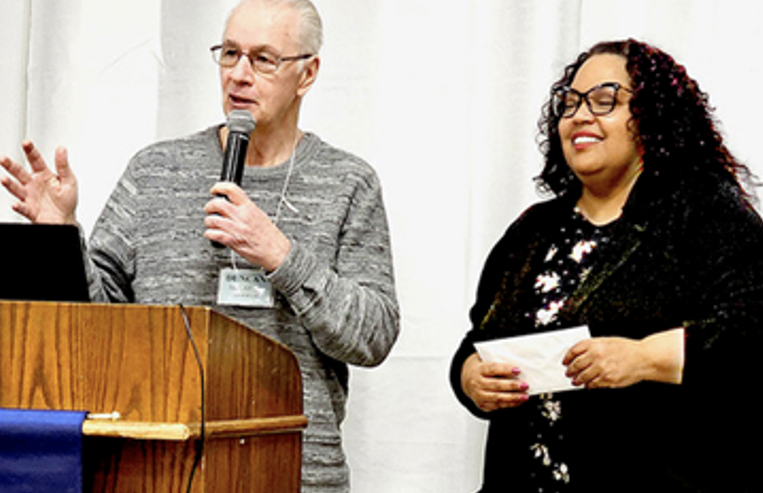
- This event has passed.
Rochelle Bush – Tubman Tours

Rochelle Bush – Tubman Tours,
Topic: Links to Underground Railroad and Black history unveiled
Duncan McLaren introduced Rochelle Bush whose topic was the Underground Railroad in Niagara and the Black presence in St. CatharinesRochelle is the owner and primary guide of Tubman Tours Canada and is a trustee and resident historian of the Salem Chapel, BME Church. Her presentation celebrated Black History Month 2024.
Rochelle talked about the Niagara Freedom Trail and its many characters, events, and locations. She traced Black history from Carter G. Woods, who founded the Association for the Study of African American Life and History, to the establishment of Negro History Week in the USA in 1926 and Canada in the 1950’s to the establishment of Black History Month, every February since 1976.
Rochelle told the stories of Elijah McCoy (the real McCoy) who invented the lubricating cup, Mathieu da Costa, who was an Afro-French member of the exploring party of Samuel de Champlain and was the first recorded free Black person to arrive in Canada, and Olivier Le Jeune who was the first recorded slave purchased in New France.
The Niagara Freedom Trail was established in 1995 and honours the thousands of African American slaves who found freedom in Canada. The Underground Railroad aided an estimated 40,000 slaves in their escape to the northern American states, or ultimately to the freedom of Canada. Fort Erie was a popular crossing for freedom seekers because of its proximity to Buffalo along with Niagara Falls and Niagara-on-the-Lake.
Rochelle told the story of Josiah Henson who was an author, abolitionist, and minister. Born into slavery, in Maryland, fearing that he would be separated from his family, he escaped and hiked from Kentucky to Upper Canada in 1830 with his wife and four children, and founded a settlement and laborer’s school for other fugitive slaves in Upper Canada.
She spoke of many historic figures including Harriet Tubman who had ties to St. Catharines. Tubman, for a time a member of the Salem Chapel BME Church, who, after escaping slavery, made some 13 missions to rescue approximately 70 enslaved people, including her family and friends, using the network of antislavery activists and safe houses known as the Underground Railroad. Reverand Anthony Burns, an escaped slave, gained his freedom in Canada and briefly served at the Zion Baptist Church now located on Raymond Street.
Rochelle told the story of the Chloe Cooley incident. Chloe was sold by her enslaver and was to be sent back across the Niagara River to a new owner in New York, but her loud protests drew attention and although she wasn’t rescued her abduction played a key role in the passage of the Act to Limit Slavery in Upper Canada in 1792. Slavery was eventually abolished throughout most of the British Empire in 1833 and Emancipation Day, held each August 1, marks the date in 1834 when the act came into effect.
Recently, on February 3, 2024, Parks Canada unveiled a historical plaque outlining the Chloe Cooley story, to be installed at Queenston Heights.
Rochelle also talked about Richard Pierpoint who came to Canada, served as a British soldier, fought with Butler’s Rangers, raised a Colour Corps and received a land grant in what is now St. Catharines.
She pointed out that the Fugitive Slave Act passed in the United States in 1850 meant that any Black people living in the northern states could be accused of being runaways, captured and returned to enslavement. This increased the urgency to seek safety north of the border.
 Duncan McLaren thanked Rochelle for her very interesting and extensive presentation of this part of Niagara’s history and asked for a show hands of members who would be interested to taking one of Rochelle’s tours.
Duncan McLaren thanked Rochelle for her very interesting and extensive presentation of this part of Niagara’s history and asked for a show hands of members who would be interested to taking one of Rochelle’s tours.
